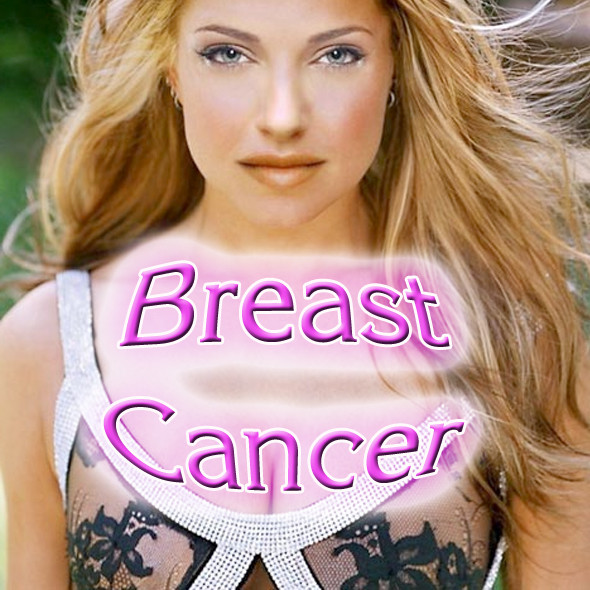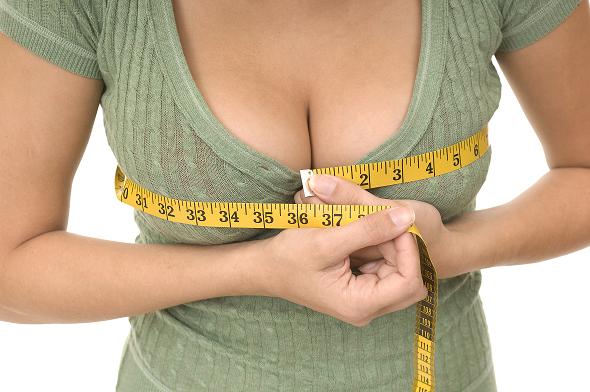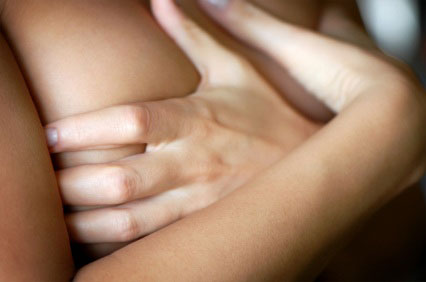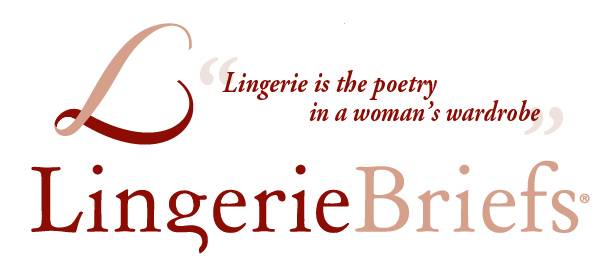Is Bra Size Linked to Breast Cancer?
By Elisabeth Dale

This week’s media reports were filled with stories claiming a link exists between a woman’s larger breasts and an increased risk of breast cancer. What started out as one news story in the UK’s Daily Mail morphed into multiple outlets reinforcing, by repetition, this scientific conclusion. From the Huffington Post, to CBS and Glamour, women were informed about the relationship of busty bosoms to diminished breast health. Some outlets tweaked their stories and touted the discovery of a gene that regulates a female’s breast size. Comments to news posts ranged from “makes sense, that’s why it’s important to get a mammogram,” to “glad mine are smaller.” What became difficult to assess were the specific facts behind these non-stop news headlines.
The source for all these articles came from published research carried out by a private genetics testing company, 23andme. And how was breast size analyzed? It was by self-reported bra size, via a survey of the company’s 1600 plus study participants and clients. Lingerie industry insiders and others know that many women don’t wear the proper size for their body, change in shape over time, or can fit into a variety of bands and cups depending on brand. It’s difficult to judge the accuracy of any relationship to size, given all of these variables. (I also wondered if sizes options offered went from AAA to DD or up to K .) Even the press release from 23andme announcing the publication of their investigation did not state that (a) they had found the gene for breast size; or (b) larger breasts are at greater risk of developing breast cancer. These genes may exist, but 23andme cautions that more research must be conducted.

The National Health Service examined the facts behind this story and concluded: Breast cancer is a complex condition that is linked with multiple risk factors, such as age, obesity and estrogen levels. It is unclear how these factors interact, and what role the genetic variations identified in this study may play in the development of breast cancer.
This study does not support headlines claiming that women with larger breasts have a higher risk of breast cancer. It can only tell us that some of the genes associated with breast size are also associated with breast cancer. It does not tell us whether these genetic variations translate into increased rates of the condition among women with large breasts.
For more info on breast and other health news, you can subscribe to “behind the headlines” at the NHS website. Bra and breast size matters, but not as much as some would like us to think.



Thanks, Diane. Appreciate your kind words about the post and my mission. We all need to remember that scientists haven’t managed to find a cure for any cancers, much less those that start in the breast. I’d like to see more research dollars go toward environmental links. Some think that the pollution in Camp Lejeune could be the reason why so many men have been diagnosed with breast cancer. It’s a compelling theory: http://www.smartplanet.com/blog/science-scope/from-marines-study-breast-cancer-clues/13302,
Excellent post, Elisabeth! I’ve seen a some stories — and received a few comments from readers — claiming some kind of link between bras and breast cancer but hadn’t heard that bra size was now being touted as a factor, as well. For the record, my breasts weren’t all that big but they still managed to come up with 3 tumors between them.
I think all of us want to find an easy answer for breast cancer. I know I’ve combed through my life looking for an explanation (was it the weight gain? the birth control pills? that mean thing I said to Toni Anderson back in fourth grade?). I’m sure, the grand mystery of BC is what’s behind our willingness (and that of the media) to leap at oddball connections like bra size — or bras, period. Unfortunately, there are no easy answers. As you say, BC is an incredibly complex disease with multiple risk factors – the number one, of course, being the simple fact that you’re a woman. At this point in time, I try not to look for answers to why it happened to me but focus on ways to keep it from coming back. I eat healthfully (kale anyone?); I exercise like a fiend (boxing has turned out to not only be a great workout but a dynamite way to work off my anger/frustration about losing my girls) and don’t drink an inordinate amount of alcohol. There are no guarantees, of course, but there are (multiple) studies out there that show diet, exercise, and alcohol intake can make a difference. Am keeping my fingers crossed such will be the case for me (and others). Take care and thanks so much for your stellar coverage of the wide world of breasts.